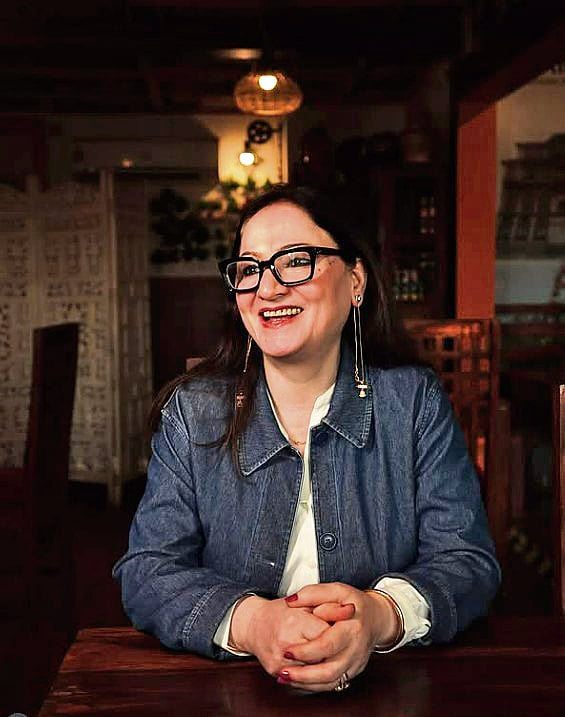Pooja stands silently in the corner of Matamaal, her fingers tracing the edge of a faded photograph on the wall. Her eyes glisten as the smell of saffron and walnuts drift through the air. “It feels like home,” she says. This is no ordinary restaurant. It has a portal—a place where food, memory, and identity intertwined.
Matamaal—“House of Grandmother”—is the dream of Nalini Moti Sadhu and her husband Surender. What began as a small effort to serve authentic Kashmiri Pandit cuisine in Delhi has grown into something far deeper: a living archive, a sanctuary for a community scattered since the 1990s exodus. “Our initial idea was simple,” Nalini says, “We wanted people to taste authentic Kashmiri food again. But what we’ve built is so much more. It became a place where people could reconnect with their culture.” That longing to preserve culture had always been in her, born in the kitchens of her childhood. “Cooking was how we preserved our culture at home. It was never just about food, it was identity.”

By 2012, she began taking small food orders through social media from her home in Gurugram. The response was instant, but people weren’t coming only for the food. “They began talking about their childhoods, their language, their lost homes,” Nalini remembers. Surender adds, “That’s when we realised — we weren’t just running a restaurant. We were giving people a home away from home.”
Today, Matamaal’s warmth spills across Gurugram, Delhi, and Noida. Photographs of Kashmiri festivals line the walls, copper samovars gleam under soft lights, and shelves hold handwoven pherans and clay lamps. During Herath, the festival of Lord Shiva’s wedding, families fill the restaurant, cracking walnuts, singing hymns, sharing stories. On Navreh, the Kashmiri New Year, laughter and traditional songs echo through the space. Even people from outside the community now join in, learning, tasting, celebrating.
Perhaps Matamaal’s greatest legacy lies in the children who never saw Kashmir. “They come here and learn what words like haakh and tchot mean. They begin to know who they are,” Nalini says.
Over the years, the Sadhus have served over 10 lakh people—each plate carrying more than flavour. “It’s not just about food,” Nalini says. “It’s about giving identity back to our people.”
from Food https://ift.tt/f61mUkL




0 Comments